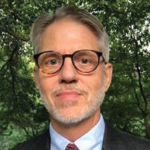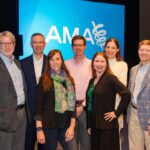
Dr. Bryant
Over the years, the ACR delegates have drafted several resolutions and seen some victories along the way that resulted in policy change at the national level. Many of the resolutions advanced by the ACR delegation have sought to address significant issues rheumatologists face that impact patient care and access, such as utilization management tactics like prior authorization, step therapy and other burdensome payer practices.
Just recently, the ACR team authored a resolution to raise the NIH’s indirect 15% cost cap on research grant funding, which was recommended for adoption at the HOD. In 2024, the ACR delegation led an initiative to support Medicaid payment parity for pediatric subspecialists, which was passed by the HOD.
However, “there are real challenges now as far as evidence-based medicine and public health are concerned,” Dr. Bryant notes. In June, the HOD issued emergency resolutions addressing the disbanding of the Centers for Disease Control & Prevention’s (CDC’s) Advisory Committee on Immunization Practices (ACIP) and the necessity of separating evidence-based medicine from politics.
The process of crafting messaging to policy makers is “a long-term game,” notes Dr. Downey. “This is not an overnight-success sort of situation. Sometimes our efforts pay off and sometimes they result in a partial win. We need to be very tenacious with our advocacy efforts.”
Strength in Collaboration
“The AMA delegation is great because it’s the whole house of medicine,” Dr. Downey continues. “When we work with different medical specialties and we create coalitions, we find that other cognitive specialists face our issues.”
The ACR delegation has participated in forging multiple coalitions with other specialty societies, Dr. Bryant reports, efforts which have often produced a unified front and resulted in adoption of resolutions by the HOD. “The issues arising from the complexity of healthcare delivery and practice management in the United States dovetail with ensuring appropriate and timely care for our patients,” he says. Issues around medical education and research, too, are common across multiple specialties and produce natural alliances with others.

Dr. Moynihan
Dr. Moynihan points out, “We’ve often looked for partners so that our voice is louder, because if we can persuade the AMA House of Delegates to go along with what we see needs to be done, then they will help support us with financial and legal assistance.” She credits Dr. Bryant’s crucial efforts in forging relationships over the years with other groups. As a result, “coalitions come together a bit more easily since rheumatology has garnered more trust.”



